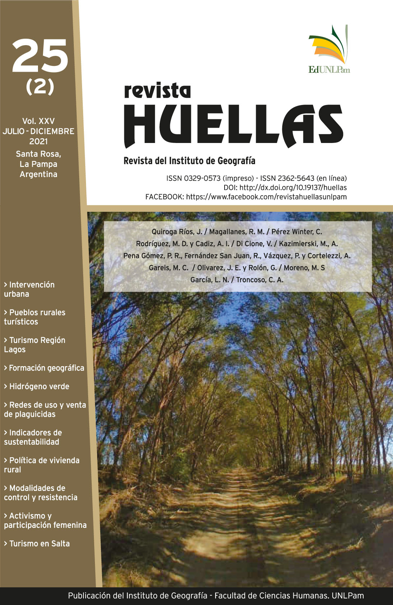Deterritorialization in housing policies. The case of Law No. 6.758/05: Provincial Rural Housing Program in Santiago del Estero (Argentina)
Keywords:
territory, housing deficit, state practices, rural habitatAbstract
The state, within the framework of a development strategy in face of the risk and vulnerability implied by the housing deficit, promotes housing policies that influence the transformation of space and the configuration of the population’s territorialities. However, state practices and representations on habitat problems respond to the degree of hegemony that it exerts, imposing itself on local habitat conditions and socio-cultural frameworks. In this sense, this work analyzes the logic of territorialization derived from the conceptualizations implied in Provincial Law No. 6.758/05, enacted for the production of rural housing in Santiago del Estero province. To achieve that goal, this work focused on four axes: the delimitation of the housing problem / solution, the guidelines regarding the policy execution process, the beneficiary and the housing solution. It was observed that the rural housing policy based on this Law would affect the space, implying a process of deterritorialization due to the modification of the characteristics of the previous dwelling system and another of reterritorialization due to the occupation of the new system.






.png)












3.jpg)


